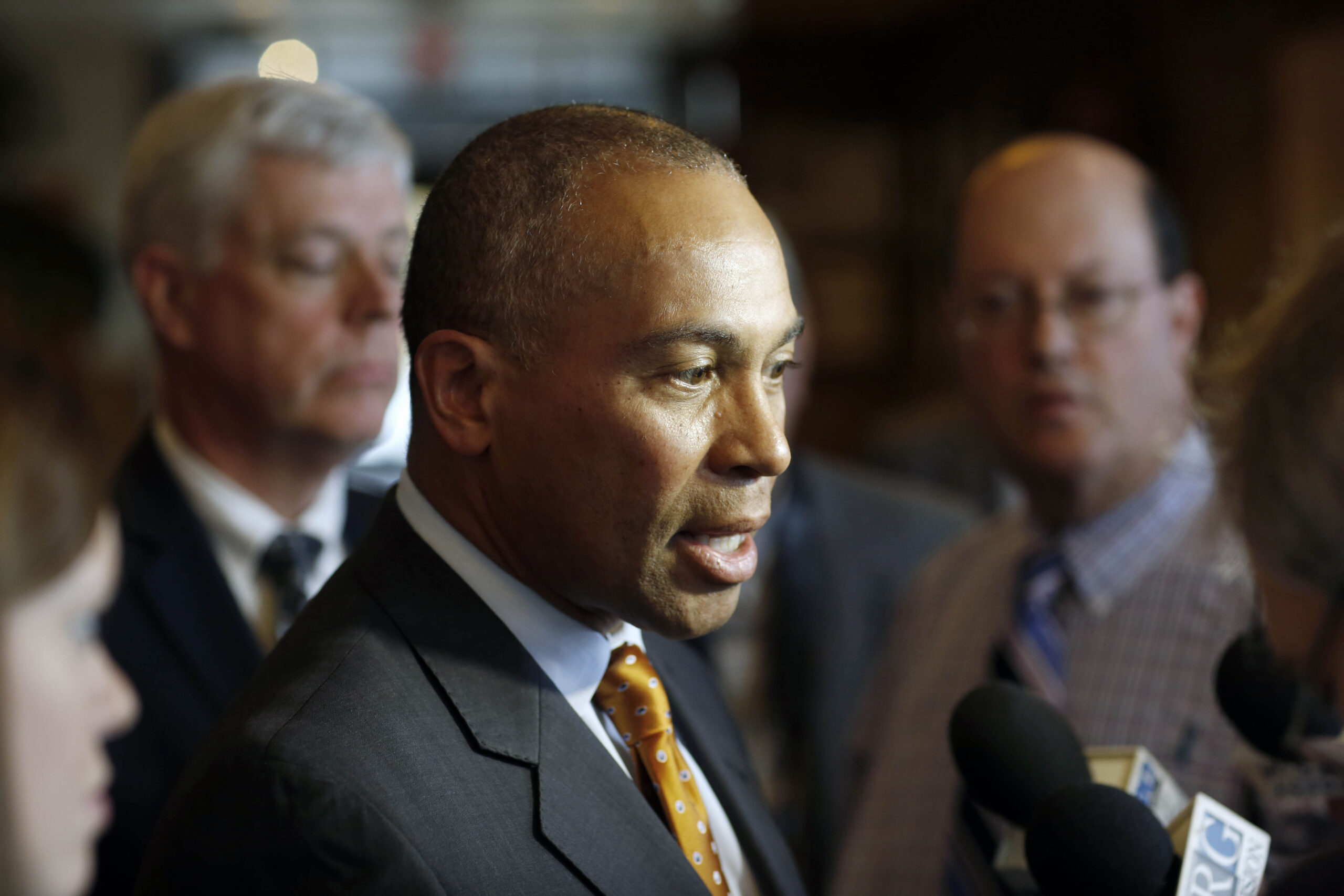Less than a week after Michael Bloomberg revealed he plans to seek the 2020 Democratic presidential nomination, another very late contender has stepped forward: Ex-Governor Deval Patrick of Massachusetts.
In his announcement video Patrick (the first black governor in Massachusetts’ history) said his candidacy would focus not only on the character of the individual candidates, but on the “character of the country,” arguing that the country needs unity and a new American dream for people to strive towards.
Patrick has a clear strategy for establishing himself in the race.
Of the four early primary states, he plans to invest in New Hampshire (which he registered for on Friday at the last possible moment), where his experience as the governor of a neighboring state could give him an edge over the competition, and South Carolina, where his close personal and political links to former President Obama might help him to woo black voters who currently favor Joe Biden.

However, there are numerous and significant obstacles in Patrick’s path.
Firstly, time will be a huge factor in his run; the former governor has already missed the filing deadline for the Alabama and Arkansas primaries, which are both Super Tuesday states, and will struggle to connect with voters who have been hearing from various other Democratic candidates for over a year at this point.
This organizing effort will not be easy for Patrick to put together; with the contest well underway, there are few experienced Democratic operatives who are available to take jobs with a brand new presidential campaign. Many of Patrick’s personal allies are already committed to other campaigns: Doug Rubin is working for Tom Steyer and John Walsh is working on Senator Ed Markey’s re-election bid.
This lack of staff is apparent from Patrick’s announcement video. His story of growing up in an urban community and overcoming challenges is similar to that of Senator Cory Booker’s, but in comparison to Booker’s slick and energetic announcement video, Patrick’s is reminiscent of a PowerPoint presentation.
Even if Patrick is able to cobble together a competent team, it is unclear how he would pay them. Unlike Michael Bloomberg, Patrick can’t tap a gigantic personal fortune to turbo-charge his campaign. Meanwhile, many prominent, affluent Democratic donors who might have supported him if he had committed to a run earlier are already committed to supporting other candidates.
Progressive candidates such as Bernie Sanders and Elizabeth Warren have pioneered grassroots fundraising techniques that allow them to avoid relying on big money. But that approach probably won’t work for Patrick.
In part, that’s because Patrick has a long history of working with companies and industries that grassroots Democratic activists don’t like – an oil company that dumped chemicals in the Amazonian rainforest, a firm peddling subprime mortgages in the run up to the 2008 crash, Mitt Romney’s venture capital company, and Coca-Cola, who at the time were hiring fascist mercenaries to attack labor organizers in their South American plants.
Perhaps the biggest question looming over Patrick’s candidacy is simply, “Why?”
Patrick doesn’t seem to be bringing anything new or interesting to the race; he’s a neoliberal (but so are Biden, Klobuchar, and Buttigieg), he is black (but so are Cory Booker and Kamala Harris) and he’s pushing a message of unity (but then, so is practically every candidate in their own way).
Furthermore, despite the misgivings of wealthy Democratic donors at Manhattan cocktail parties, ordinary Democratic voters really like the candidates already available (two thirds say the field is “excellent” or “good”).
Patrick’s rationale for joining the race, as expressed on ‘CBS This Morning’ last month, is that the Biden campaign’s support was too “soft” and that the campaign was “contracting rather than expanding.” Patrick – as a neoliberal with a long career as a corporate lawyer – is no doubt worried that a collapse by Biden would open the door to the nomination of Bernie Sanders or Elizabeth Warren.
However, his entry (along with Michael Bloomberg’s) into the Democratic presidential sweepstakes may actually split the neoliberal vote further, making it more likely that Warren or Sanders could clinch the nomination.

